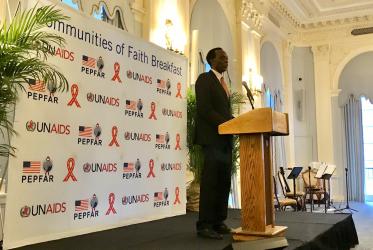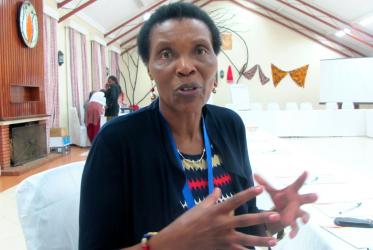Displaying 1 - 12 of 12
Zambia: “On HIV, we do not compete. We work together.”
20 October 2016
Kenya: Voice of faith communities crucial in overcoming HIV
14 October 2016
Churches have a special role to play in HIV response
18 November 2014
Churches must create and sustain healthy communities
09 April 2013





